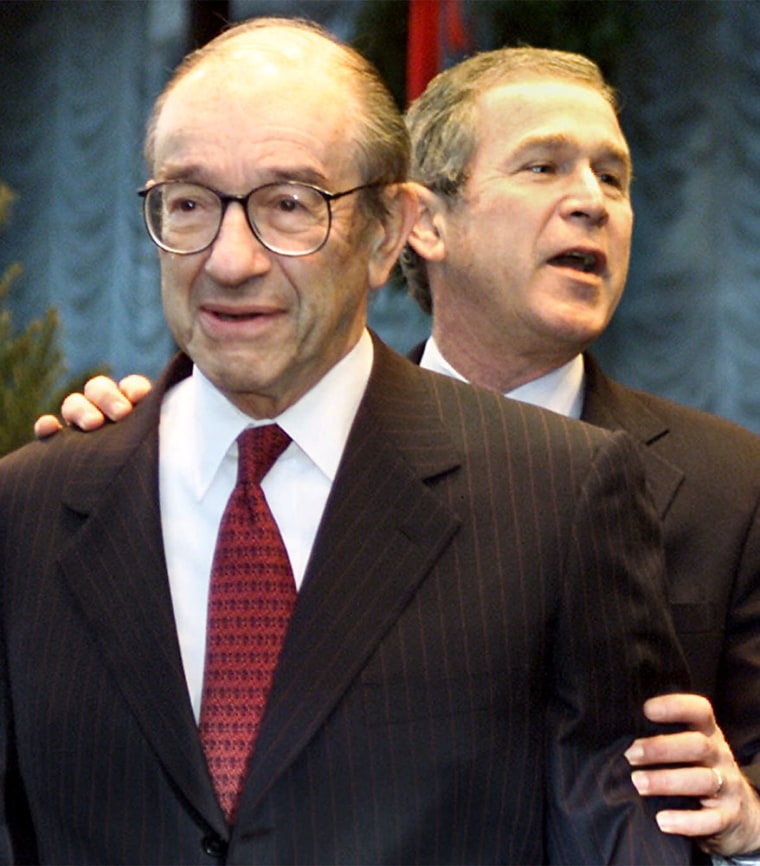Federal Reserve Chairman Alan Greenspan, heading for virtually certain Senate approval for a fifth term at the helm of the U.S. central bank, repeated on Tuesday that interest-rate rises were likely to be gradual.
Answering questions before a Senate Banking Committee hearing considering his nomination to remain as chief of the Fed, which he has headed since 1987, Greenspan said he saw scant likelihood that inflation was about to flare up and force a round of aggressive short-term interest rate increases.
“Our general view is that inflationary pressures are not likely to be a serious concern in the period ahead,” Greenspan said, so future rate rises were “very likely to be measured over the quarters ahead.”
Wall Street analysts have generally interpreted measured interest-rate rises as implying smaller, quarter percentage point increases as opposed to more aggressive, half-percentage point hikes, which might risk sapping economic activity.
The Fed’s policy-setting Federal Open Market Committee is set to meet in two weeks, on June 29-30, and it is widely expected to increase short-term interest rates from their 1958 lows to keep inflation in check.
Wary on energy
Greenspan acknowledged the Fed was closely monitoring energy prices in the wake of the recent escalation in oil prices but he didn’t think they were a major issue “yet.”
Earlier on Tuesday, the Labor Department said its May consumer price index — used as a proxy for inflation pressures — jumped a surprisingly strong 0.6 percent in May, the strongest gain since January 2001.
Most of the CPI gain came from food and energy costs, while so-called underlying inflation, which strips out these elements, went up a more moderate 0.2 percent. That, together with Greenspan’s assurances of “measured” rate rises, helped buoy bond prices, which were up at midday.
The Fed chief, widely praised by most members of the committee for his stewardship of U.S. monetary policy, was generally positive about the outlook, describing the economy as being in “a fairly strong recovery, which seems to have legs to it.”
Only one committee member, Republican Sen. Jim Bunning of Kentucky, said he would not back Greenspan’s nomination.
At the beginning of the hearing, Greenspan emphasized the Fed has to be prepared to deal with any potential risk to continued economic expansion since uncertainty has become “the defining characteristic” of the landscape.
“Going forward, we must remain prepared to deal with a wide range of events,” he said. “Particularly notable in this regard is the fortunately low, but still deeply disturbing, possibility of another significant terrorist attack in the United States.”
President George W. Bush renominated Greenspan for a fifth, and final, term as Fed chairman last month. The banking committee is expected to vote on the nomination within days, paving the way for a final vote in the full Senate, which must approve the president’s choice.
Greenspan’s current term as chairman expires on June 20, but he can continue to serve in an acting capacity if the Senate has not acted by then.
